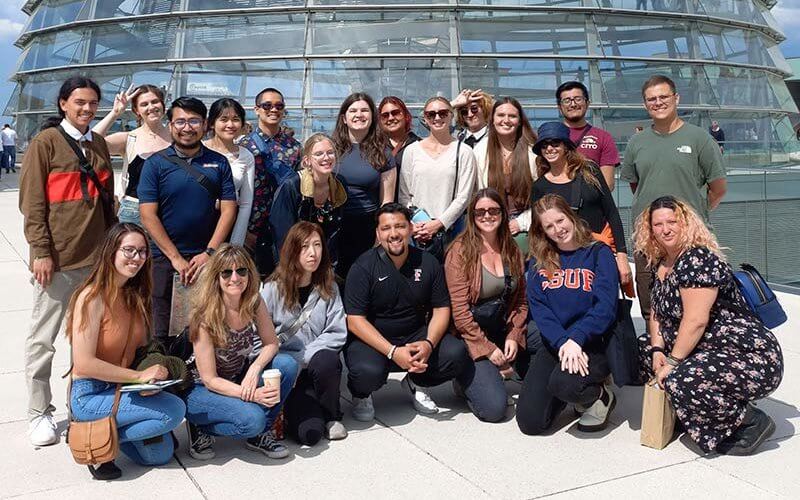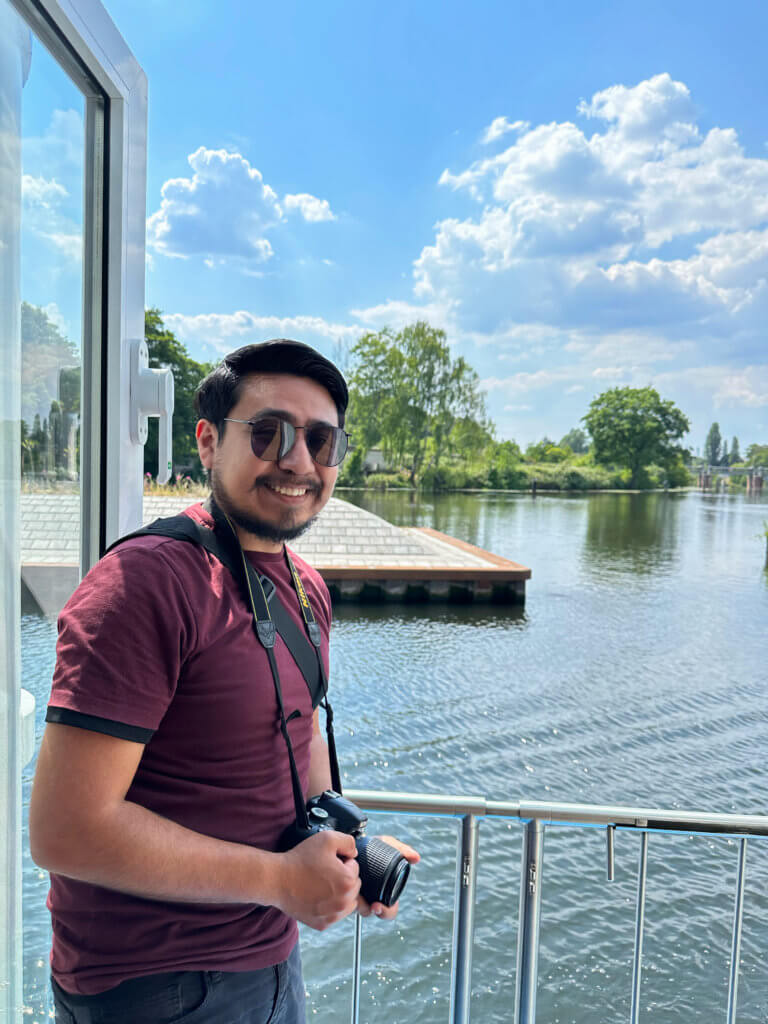
Walking through the cobblestone streets of Berlin, Germany, on a warm summer afternoon, students watched as history leapt off the page.
As part of Cal State Fullerton’s College of Humanities and Social Sciences annual study abroad program, a group of 20 students traveled to one of the greenest cities in Europe to study 20th-century German history amongst the landmarks and memorials where that history was made.
“We looked at the history of the Weimar Republic, World War II, the Third Reich and the Cold War,” explained Cora Granata, a professor of history who led the trip. “Germany openly commemorates and publicly discusses the dark aspects of its past in an effort to understand the dangers of racism and extreme nationalism in our world today.”
Although it can be difficult to learn about such topics as dictatorships, racism, war and genocide, Granata said that students grow from these experiences as they gain a deeper understanding of how history impacts the present and future.

To date, Cal State Fullerton has offered this program in 2016, 2017, 2019 and 2023 for a total of 63 students.
History graduate student Anthony Chavez added that he formed close friendships with his classmates and was inspired by how the city brought the lessons to life beyond the textbook.
“The history which I have learned through numerous textbooks became tangible in Europe,” said Chavez.
Christine Le, a fourth-year history major, was surprised to find connections to her Vietnamese heritage in Berlin.
“Prior to arriving in Germany, I did not expect the scale of the Vietnamese presence in Berlin,” said Le. “As I dined at restaurants, heard Vietnamese words on trains or out on the streets and practiced my Vietnamese among Northern Vietnamese dialect speakers, I gained a new curiosity and wanted to further learn about these people who decided to stay in Berlin or later emigrated more recently.”
As she continues her history education, Le said she is interested in research where she collects and analyzes stories, conversations and narratives that capture Vietnamese immigrant life under Soviet rule and in the German Democratic Republic.
Granata added that studying abroad makes students more adaptable individuals who are open to lessons from other cultures. Students went home thinking that the U.S. could learn from Germany by confronting the full range of U.S. history.